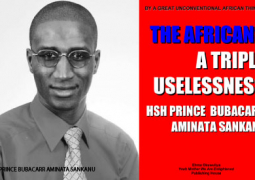The Islamic Education and Scientific and Cultural Organisation (ISESCO), in collaboration with NATCOM-UNESCO, on Wednesday organised a one-day forum on open-day knowledge economy to sensitize participants on the framework of ISESCO Action plan 2013-2015.
Senior government officials from the ministries of Education and Trade, as well as officials from UNESCO, graced the opening ceremony.
Delivering the opening statement, Yahya Al-Matarr Jobe, acting-secretary general of NATCOM, said ISESCO and its partners the Gambia National Commission for UNESCO are implementing the open day on knowledge-based economy under the UNESCO plan for the year 2013.
Mr Jobe told participants that the forum was intended to sensitize governments and national publics on the positive impact of knowledge-based economy, particularly the incorporation of knowledge through greater integration and wider dissemination and the use of knowledge as a key factor for enhancing economic growth and wealth and increasing employability.
“This open-day forum consists of key notes by discussants that have been selected among national experts on knowledge-based economy,” he said.
It is envisaged that the forum would contribute to creating opportunities for policymakers, civil society organisations, academics and businesses to facilitate development across sectoral projects and initiatives and to provide general support for the educational scientific and cultural development of the Gambian people.
Momodou Lamin Ceesay, deputy permanent secretary at the Ministry of Trade, who delivered a statement on behalf of the Minister of Trade, said the topic of the symposium – knowledge-based economy - is very apt and pertinent to what is going on today in
“Imagine that
In a knowledge-based economy all the factors of production, land, labour, capital, enterprise and knowledge are at interplay to promote growth and development at both corporate and individual levels, he added.
Dr Omar Jah, chairman of ISESCO in The Gambia, said the forum would highlight the need for reviewing the mechanism that enables knowledge-based economy and innovation to respond to the challenges of consumer development faced by African countries, take the necessary and appropriate measures to make economic reforms create job opportunities and advise economic development in the African member states.



